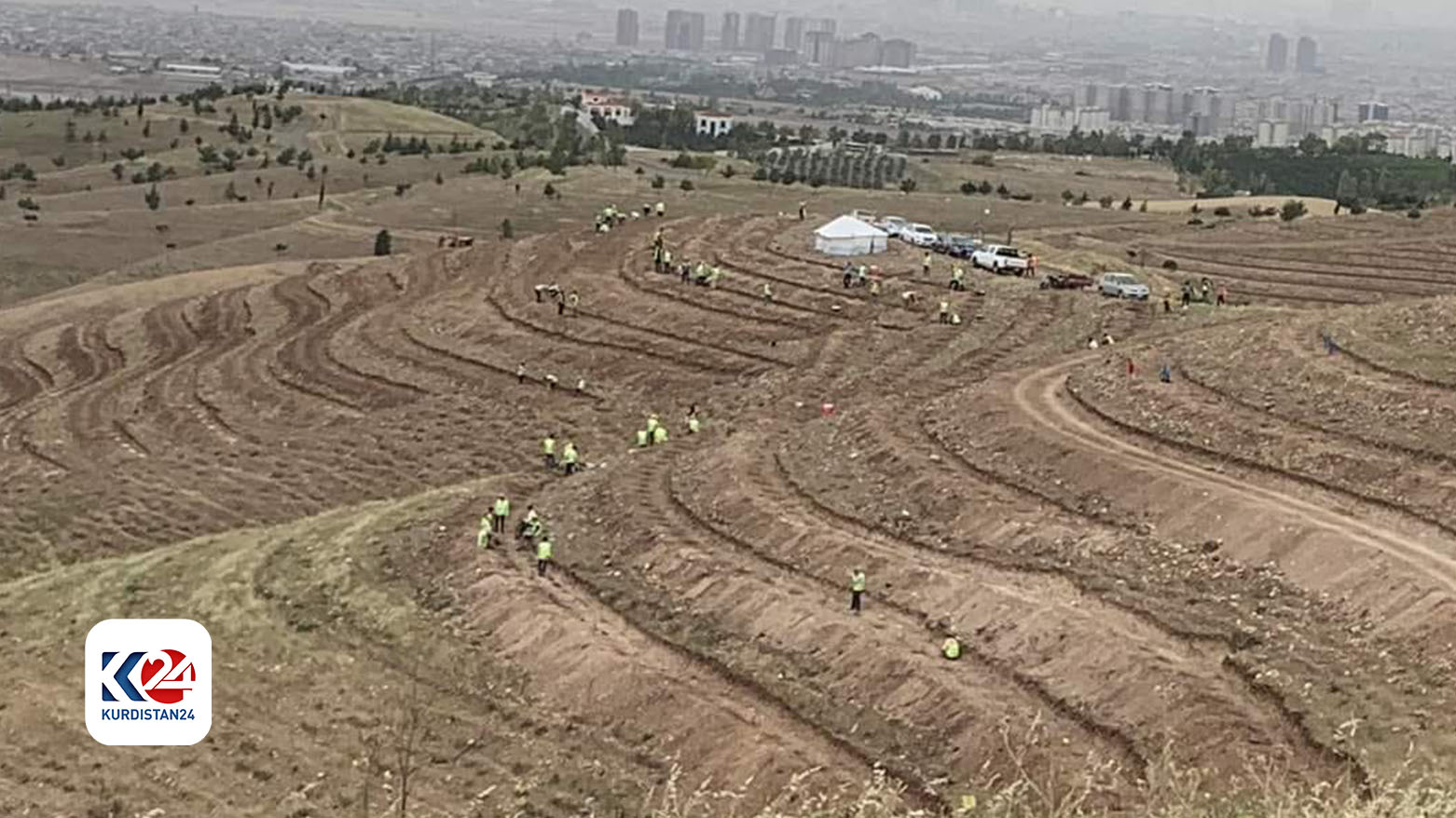20,000 olive trees to be planted in Erbil
The Kurdistan Region boasts seven olive oil factories, which play a crucial role in supplying olive oil domestically and internationally, benefiting farmers significantly.

ERBIL (Kurdistan24) — A Germany-funded project in collaboration with the Kurdistan Regional Government Ministry of Agriculture and Water Resources and a local NGO is planting 20,000 olive trees in Erbil province in a bid to combat the adverse effects of climate change.
In a statement, the Ministry of Agriculture detailed that the Director General of Horticulture, Forestry, and Fisheries, along with a special ministerial committee, are overseeing the implementation of the olive tree planting project and providing necessary recommendations to ensure its success.
This project is funded by the German Federal Ministry for Economic Cooperation and Development (BMZ) and supported by the Deutsche Gesellschaft für Internationale Zusammenarbeit (GIZ) GmbH and Rwanga Foundation.
Hundreds of farmers in the Kurdistan Region of Iraq have been planting olives for several years, with the produce processed into olive oil in seven regional factories.
Shakir Mohammed, a local gardener, emphasized the suitability of Kurdistan's land for olive cultivation. “Kurdistan is a land of gold, very suitable for planting olive trees. Currently, we can export thousands of tons of olive oil,” he told Kurdistan 24.
The Kurdistan Region boasts seven olive oil factories, which play a crucial role in supplying olive oil domestically and internationally, benefiting farmers significantly.
On Thursday, February 22, 2024, Prime Minister Masrour Barzani visited the Rasan olive oil factory in Halabja province.
Established in 2018 and currently undergoing expansion, the factory has become essential for olive production in the region, directly and indirectly benefiting over 250 citizens of Halabja province.
